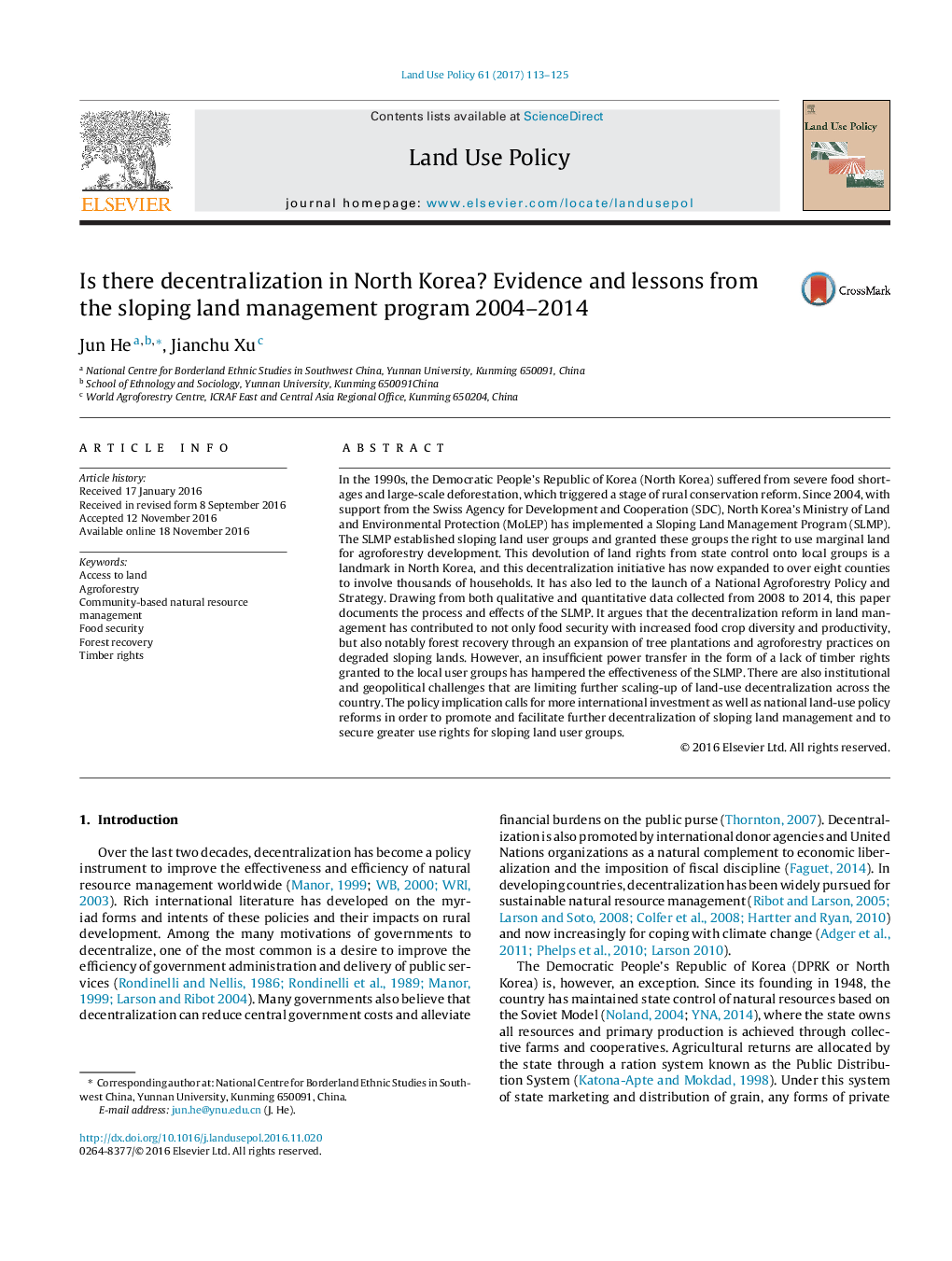| Article ID | Journal | Published Year | Pages | File Type |
|---|---|---|---|---|
| 6461267 | Land Use Policy | 2017 | 13 Pages |
â¢In North Korea, food and energy shortages have pressured people to cut trees for fuelwood and to cultivate steep slopes for agriculture.â¢The North Korean government is carrying out a decentralization reform to grant land-use rights to user groups to improve food security and rehabilitate steep slopes.â¢The decentralization initiative has generated positive environmental, socioeconomic and policy outcomes.â¢Institutional and geopolitical challenges are limiting the potential to scale-up this decentralization initiative across the country.
In the 1990s, the Democratic People's Republic of Korea (North Korea) suffered from severe food shortages and large-scale deforestation, which triggered a stage of rural conservation reform. Since 2004, with support from the Swiss Agency for Development and Cooperation (SDC), North Korea's Ministry of Land and Environmental Protection (MoLEP) has implemented a Sloping Land Management Program (SLMP). The SLMP established sloping land user groups and granted these groups the right to use marginal land for agroforestry development. This devolution of land rights from state control onto local groups is a landmark in North Korea, and this decentralization initiative has now expanded to over eight counties to involve thousands of households. It has also led to the launch of a National Agroforestry Policy and Strategy. Drawing from both qualitative and quantitative data collected from 2008 to 2014, this paper documents the process and effects of the SLMP. It argues that the decentralization reform in land management has contributed to not only food security with increased food crop diversity and productivity, but also notably forest recovery through an expansion of tree plantations and agroforestry practices on degraded sloping lands. However, an insufficient power transfer in the form of a lack of timber rights granted to the local user groups has hampered the effectiveness of the SLMP. There are also institutional and geopolitical challenges that are limiting further scaling-up of land-use decentralization across the country. The policy implication calls for more international investment as well as national land-use policy reforms in order to promote and facilitate further decentralization of sloping land management and to secure greater use rights for sloping land user groups.
